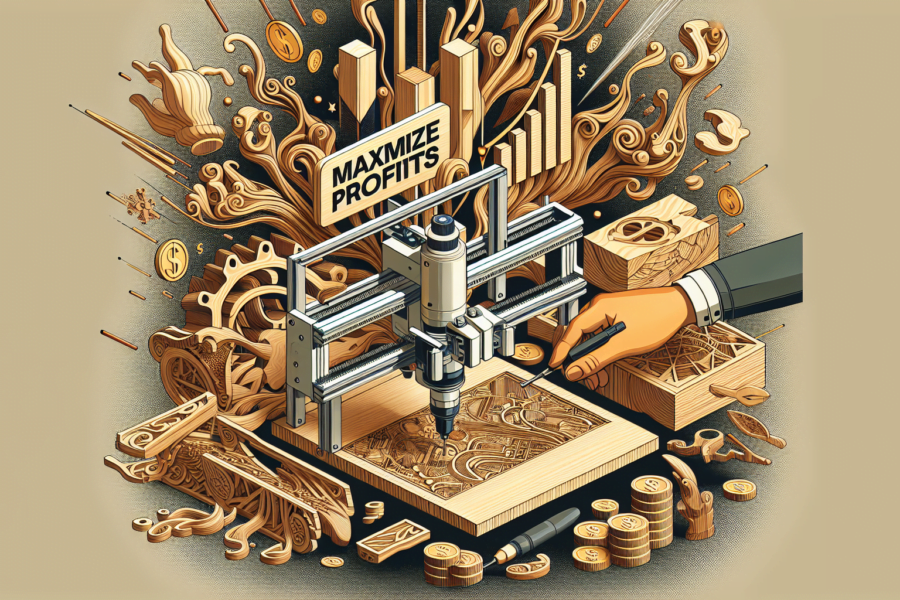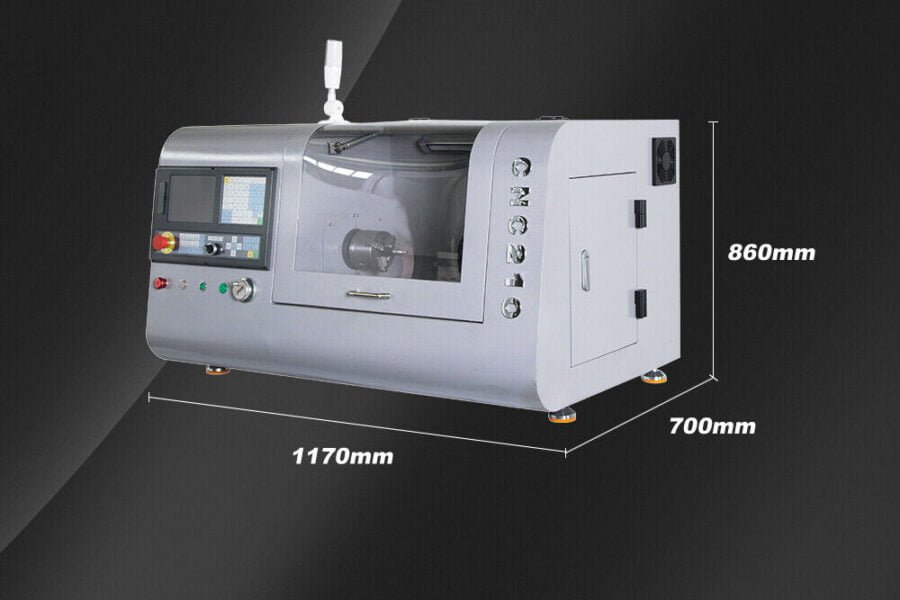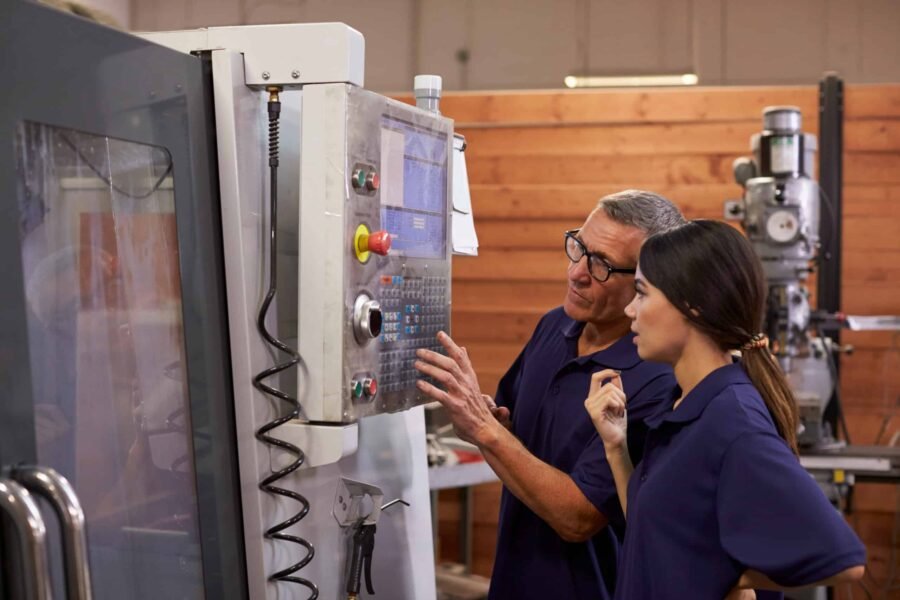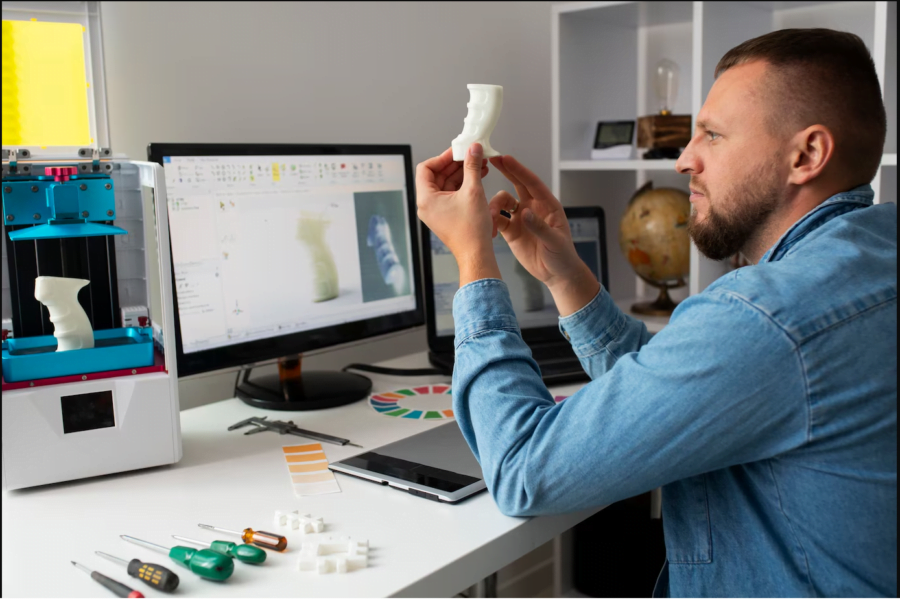CNC machine operator are at the heart of manufacturing, responsible for turning ideas into tangible products by setting up, maintaining, and programming CNC machines 1. Their work spans multiple industries, including aerospace, defense, and medical, showcasing their essential role in modern manufacturing 1.
These skilled engineers are detail-oriented, employing a variety of software and hardware tools to create everything from initial concepts to finished items 1. As we delve into the career of a CNC machine operator, we’ll explore the skills and pathways to becoming one, highlighting the opportunities this field offers 1.

Understanding CNC Machine Operation
Understanding the intricate operations of CNC machines involves a blend of mechanical insight and software proficiency. Here’s a breakdown to simplify the complexity:
- Initial Setup and Programming:
- Blueprint Analysis: CNC operators commence by studying blueprints or CAM files to determine the machine path, cut speed, and feed rate 1.
- Programming: Involves inputting instructions into the CNC machine, often using G-code and M-code, to precisely control the cutting and non-cutting operations 3.
- Machine Calibration: Before production, operators ensure machines are perfectly calibrated, setting up the correct alignment and programming for the task 2.
- Operational Oversight:
- Monitoring: As the CNC machines operate, the operator vigilantly monitors the process, making real-time adjustments to ensure optimal performance 2.
- Quality Control: Inspections are conducted before and after production, utilizing precision measuring instruments to verify that parts meet strict specifications 7.
- Maintenance: Routine checks and maintenance, like cleaning and lubricating, are essential for machine longevity and preventing mechanical issues 7.
- Safety and Precision:
- Protective Measures: Adhering to safety protocols, including wearing personal protective equipment (PPE), is non-negotiable to prevent accidents 8.
- Material Knowledge: Operators must be familiar with various materials (metals, plastics, composites) and select appropriate cutting tools for each 8.
- Clean Workspace: Maintaining a tidy work area is crucial for safety and efficiency, ensuring a smooth workflow and preventing mishaps 8.
By mastering these steps, CNC machine operators ensure the seamless transformation of raw materials into precision parts, underpinning the manufacturing process’s success 12378.
Skills and Qualifications for CNC Machine Operators
Embarking on a career as a CNC machine operator requires a mix of technical knowledge, practical skills, and personal attributes to ensure success in this dynamic field. Here’s a snapshot of the essential skills and qualifications:
- Technical Proficiency:
- Mathematical and Analytical Skills:
- Practical Skills and Problem-Solving:
- Manual dexterity and accuracy, along with mechanical skills, enable effective handling of CNC machinery 12.
- Problem-solving skills are critical for identifying and troubleshooting issues with CNC machines and software 1011.
- Continuous learning and adaptability are vital for staying updated with the latest technology and industry trends 10.
These qualifications, combined with a willingness to engage in continuous learning and professional development, pave the way for a rewarding career as a CNC machine operator 241011.
Career Path and Advancement Opportunities
Embarking on a career as a CNC machine operator opens a myriad of advancement opportunities, each with its unique set of responsibilities and rewards. Here’s a glance at the potential career paths:
- Entry-Level to Mastery:
- Start as a CNC Machine Operator, mastering the basics 4.
- Progress to CNC Technician/Setup, focusing on machine setup and adjustments 13.
- Advance to Lead-Worker or Production Supervisor, overseeing operations and quality 13.
- Aim for roles in Operations, Engineering, Quality Control, or Management for broader responsibilities 13.
- Specialized Roles:
- Towards Leadership and Ownership:
Each step on this path not only demands a deeper understanding of CNC operations but also offers the chance to significantly impact the manufacturing process, from hands-on machine work to strategic management and innovation 1413.
Preparing for a Career as a CNC Machine Operator
Preparing for a career as a CNC machine operator involves a structured approach to education and hands-on training. Here are the key steps:
- Education and Training:
- High School Diploma or GED: The foundational step towards a career in CNC machining 1.
- CNC Machinist Training Programs: Enroll in programs like the 36-week CNC Machining Technology program offered by Universal Technical Institute (UTI) or the six-month CNC Production Specialist career certificate program at Orange Technical College 6[25].
- Hands-on Experience: Start as an assistant to an experienced CNC machinist, aiming to gain up to two years of practical experience [19].
- Certification and Further Learning:
- CNC Production Specialist (CCI) Certification: Obtainable through Machining Training Solutions after completing a certificate program 6.
- Continuous Learning: Engage in further education at trade and vocational schools, and consider advanced certifications like the Certified Production Technician (CPT) and CNC Operator credentials offered upon completion of Goodwin University’s associate CNC machining program 17[27].
- Entering the Workforce:
- Entry-Level Positions: Begin your career as an entry-level CNC machinist with an average starting salary of $18.00 an hour or $37,000 annually, with the potential to grow as you gain experience 1.
- Advancement Opportunities: With experience and additional training, progress to roles such as CNC machine operator, quality control inspector, or CNC programmer [28].
This roadmap is designed to guide aspiring CNC machine operators through the necessary steps to secure a successful career in this high-demand field, emphasizing the importance of both theoretical knowledge and practical experience.
Conclusion
Embarking on the journey to become a CNC machine operator requires a blend of mechanical insight, software proficiency, and continuous learning. Our exploration has underscored the essential role these operators play in modern manufacturing, delving into the core skills, qualifications, and pathways that pave the way for a rewarding career in this field. The intricate dance between machine and material, under the watchful eye of the operator, not only fuels the production lines of multiple industries but also opens up avenues for personal and professional growth.
As we reflect on the significance of CNC operators in shaping the future of manufacturing, it’s clear that the demand for skilled individuals in this area will only grow. The opportunities for advancement, from entry-level positions to roles in management or even business ownership, highlight the potential for a fulfilling and dynamic career. Therefore, the journey to mastering CNC machine operation is not just about securing a job; it’s about embracing a career that offers both challenges and rewards, driving innovation and excellence in manufacturing.
FAQs
How Long Does It Typically Take to Become Proficient as a CNC Operator?
To become proficient as a CNC operator, it usually requires completing a full CNC machinist degree program at a technical college, which typically spans two academic years. These programs combine general education classes with industry-specific courses designed to equip students with the necessary skills for the job market.
What Steps Should I Take to Start a Career as a CNC Machinist?
To embark on a career as a CNC machinist, one should follow these steps:
- Obtain a high school diploma or GED.
- Secure an apprenticeship with an employer.
- Participate in classroom training.
- Attain journeyperson status.
- Earn a Red Seal certificate.
- Commit to continuous learning. Additionally, having a mechanical aptitude and strong critical thinking and problem-solving skills are essential.
Is Operating CNC Machinery a Challenging Job?
Yes, operating CNC machinery can be challenging due to the high level of precision required. CNC machinists operate in environments where even a micrometer, or a thousandth of an inch, can mean the difference between achieving perfection and producing waste. This demand for extreme accuracy, combined with strict quality control measures, represents one of the primary challenges of the job.
What Does the Career Path for a CNC Operator Look Like?
The question regarding the specific career path for a CNC operator was not answered. Typically, a career path in this field involves starting as an apprentice or junior operator, progressing to a skilled machinist, and potentially advancing to supervisory or specialized technical roles based on experience, additional training, and demonstrated skill.
References
[1] – https://astforgetech.com/what-is-a-cnc-machinist-and-how-to-become-one-full-guide/ [2] – https://www.goodwin.edu/enews/what-does-a-cnc-operator-do/ [3] – https://waykenrm.com/blogs/what-is-cnc-machining/ [4] – https://www.trscraftservices.com/blogs/2020-9/what-is-the-career-path-for-a-cnc-machinist [5] – https://www.quora.com/What-is-the-future-of-the-CNC-operator-profession [6] – https://ca.indeed.com/career-advice/finding-a-job/how-to-become-cnc-machinist [7] – https://totalaviationstaffing.com/how-to-prepare-for-a-cnc-machinist-interview/ [8] – https://www.quora.com/What-are-all-the-important-things-I-need-to-know-about-being-a-CNC-machinist-Im-about-to-get-a-job-This-is-my-first-time [9] – https://prototool.com/cnc-machinist/ [10] – https://totalaviationstaffing.com/8-essential-skills-every-cnc-operator-should-have/ [11] – https://www.xometry.com/resources/machining/cnc-machinist-skills/ [12] – https://www.goodwin.edu/enews/cnc-machinist-skills/ [13] – https://www.steckermachine.com/blog/4-tips-to-advance-your-manufacturing-career-path [14] – https://www.careerconcepts.com/guide-to-becoming-a-cnc-machinist [15] – https://blog.orangetechcollege.net/how-to-prepare-for-a-career-as-a-cnc-production-specialist/ [16] – https://www.practicalmachinist.com/forum/threads/how-do-i-become-cnc-operator-not-machinist-without-hands-on-experience.357593/ [17] – https://blogs.autodesk.com/advanced-manufacturing/2018/07/22/cnc-machining-5-skills-that-make-the-best-operators/







Leave a Comment